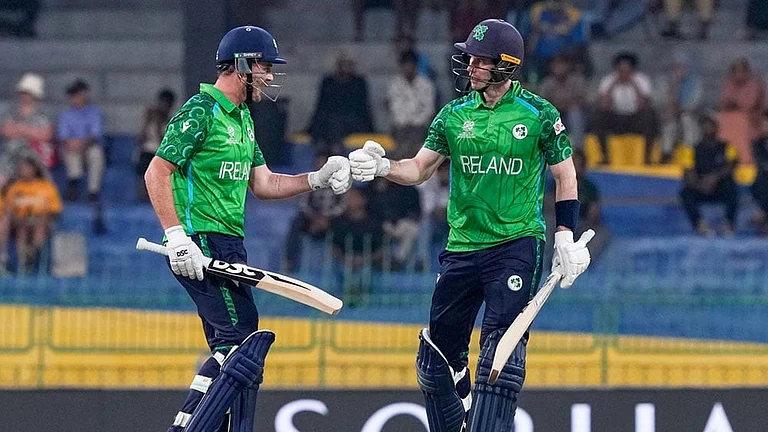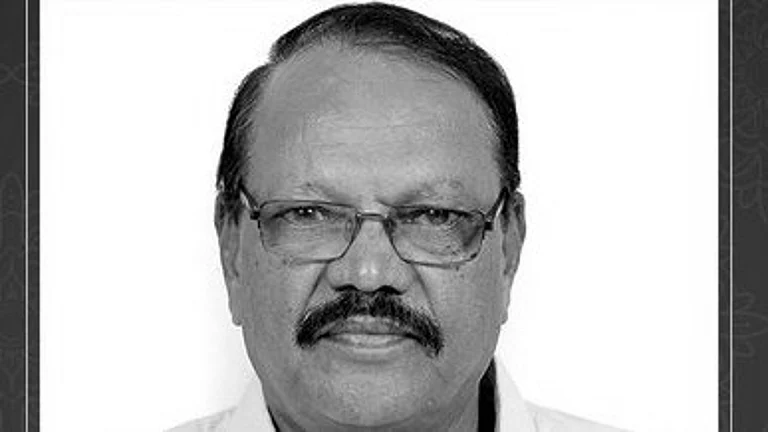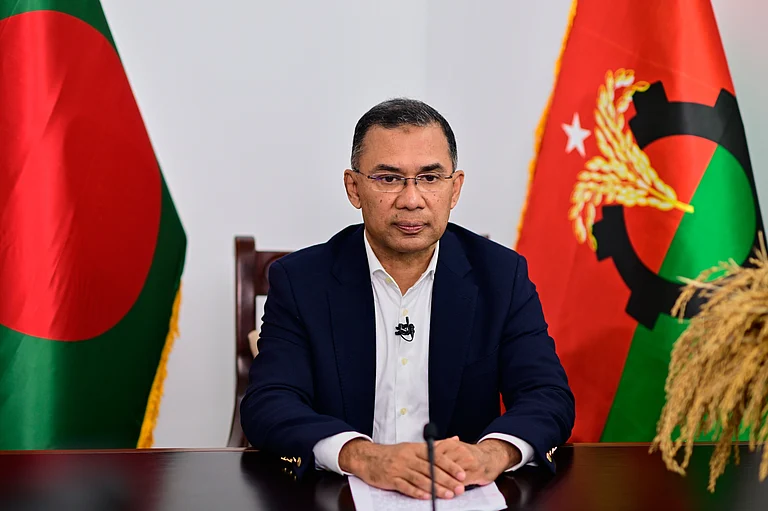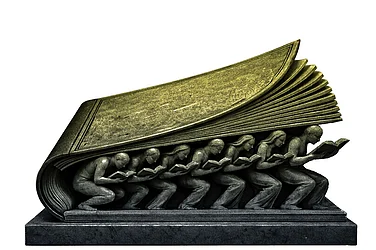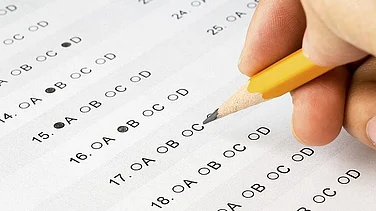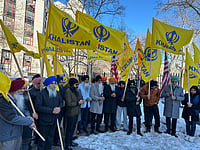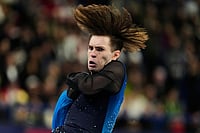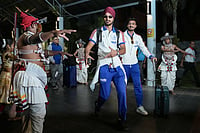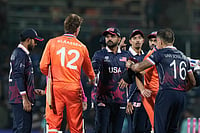"Relax, don't worry," said Rajiv Gandhi to a policewoman, who tried to stop a woman from approaching him, at a rally in Tamil Nadu's Sriperumbudur.
Moments later, the woman, who Rajiv asked the policewoman to not worry about, triggered a bomb she was carrying, killing Rajiv, herself, and 14 others.
Rajiv Gandhi, the youngest Indian prime minister at the age of 40, was assassinated on May 21, 1991, by the Liberation Tigers of Tamil Eelam (LTTE). Rajiv was the second Indian prime minister to be assassinated after his mother Indira Gandhi, who was killed by her bodyguards.
Incidentally, both Indira and Rajiv were assassinated after their military interventions that angered a section of extremists. While Indira dispatched the military after Khalistani leader Bhindranwale in Punjab and angered Sikh extremists, Rajiv intervened in Sri Lanka with the Indian Peace Keeping Force (IPKF).
The possibility of Rajiv's return as prime minister in 1991 elections and the possibility of IPKF's redeployment by him rattled LTTE in Sri Lanka so much that it decided to assassinate him.
Here we explain why and how Rajiv Gandhi was assassinated, the long legal road of conviction and commutations, and the controversy over culprits' sentencing.
Why was Rajiv Gandhi assassinated?
Rajiv Gandhi was assassinated by LTTE, an armed Tamil group in Sri Lanka that was waging a war against the island nation's government.
The LTTE turned against Rajiv after he sent IPKF to Sri Lanka. The Indian military was first dispatched with the objective of aiding Lankan authorities, but their mission changed with time, evolving into counter-insurgency and finally war in the jungles with LTTE, according to the think tank Gateway House.
Even the IPKF mission's end in 1990 did not placate LTTE which believed Rajiv to be their foremost enemy in India. LTTE chief Velupillai Prabhakaran made the decision in November 1990 and set the operation in motion, according to an India Today story from 1991.
Anirudhya Mitra, the author of the book Ninety Days: The True Story of the Hunt for Rajiv Gandhi's Assassins, wrote, "Even before the National Front government [of VP Singh] finally collapsed, the LTTE had made up its mind to prevent Rajiv Gandhi from regaining power even if it required the ultimate deterrent — his assassination.
"Realising that Rajiv as prime minister would be a near-impossible target, it was decided that they should strike while his security status was still that of an Opposition leader and election campaigning would render him even more vulnerable."
How was Rajiv assassinated?
Dhanu, the woman suicide bomber, and others from LTTE carried out two dry runs of the assassination. In the first run, they went to a rally of late AIADMK leader Jayalalitha. In the second run, they rehearsed the assassination of VP Singh.
It was in the second run that Dhanu managed to touch Singh's feet in a traditional Indian gesture of respect — just like she did with Rajiv on May 21.
On May 21, Rajiv reached the venue of the rally in Sriperumbudur past 10 pm. There were separate galleries for men and women there. Rajiv first went to the men's section and then headed to the women's section.
Rajiv approached the women and prevented a policewoman named Anusuya Daisy from disallowing Dhanu from approaching him. Moments later, Dhanu blew herself and killed Gandhi and 14 others.
Who were Rajiv Gandhi's assassins?
Dhanu was one of the eight "core" members of the LTTE group that assassinated Rajiv.
The other members of the "core" group comprised Shivarasan, Murugan, Arivu, Shubha and the three local "innocents" Bhagyanathan, Nalini and Padma, as per Minhaz Merchant's biography of Gandhi titled Rajiv Gandhi, End of a Dream.
The five squad members at the site of the assassination were Dhanu, Shivarasan, Nalini, Shubha, and Haribabu. While Haribabu, a photographer who was clicking a photo at the time of the blast, died at the scene with Dhanu, the other three fled the spot.
Of these nine, only Nalini was caught alive by the Indian investigators. The rest died by suicide. Shivarasan shot himself dead and others consumed cyanide as investigators traced them.
The conviction and controversies in the case
The 26 accused in the case were sentenced to death in 1998 by a Terrorist and Disruptive Activities (Prevention) Act court in Chennai.
However, the Supreme Court in 1999 acquitted 19 of the 26 convicts, commuted the death sentences to life imprisonments of three — Jai Kumar, Robert Pias, and Ravi Chandran, and upheld the death sentences of only four — Nalini, her husband Murugan, Santhan, and AG Perarivalan, as per a UNI report from 1999.
In 2014, the Supreme Court commuted the three death sentences upheld in 1999 to life imprisonment.
Controversies have also surrounded these convictions. It emerged in 2013 that the confession that led to Perarivalan's conviction was false.
Former Central Bureau of Investigation SP V Thiagarajan, who recorded the confession, told The Times of India that Perarivalan never said that he knew the battery he bought would be used to make the bomb that killed Rajiv. Thiagarajan admitted to altering Perarivalan's statement to show that he knew the purpose.
He said, "But he [Perarivalan] said he did not know the battery he bought would be used to make the bomb. As an investigator, it put me in a dilemma. It wouldn’t have qualified as a confession statement without his admission of being part of the conspiracy. There I omitted a part of his statement and added my interpretation. I regret it."
The Supreme Court on Wednesday ordered the release of Perarivalan.
Support for the convicts
A large section of Tamil people has been supportive of the convicts in Rajiv Gandhi's assassination case.
Besides the popular sentiment, several prominent personalities including judges and politicians have been supportive of convicts.
Originally it was DMK that speared the cause, but AIADMK too joined later. The Times of India noted in an article, "Though it was the DMK which positioned itself as a party fighting for their cause, the AIADMK sprung a surprise when Jayalalithaa declared in 2014 that she would release the convicts irrespective of the Centre’s consent."
Former Supreme Court Justice VR Krishna Iyer supported Perarivalan, as per The Indian Express. "His [Perarivalan's] soul is precious, his values noble, his jail life has not made him a criminal," wrote late Justice Iyer, as per The Express.
Justice KT Thomas, who was on the 1999 Supreme Court bench in the assassination case, invoked "double jeopardy" issue in the case in 2013, as per The Express. It reported, "Thomas said hanging the convicts after 23 years would be unconstitutional. It had led to the SC order commuting the death sentences of three convicts in 2014."
Welcoming the judgement, DMK leader and Tamil Nadu Chief Minister MK Stalin said it could find a place in the "justice-law-political-administrative history", reported PTI.
After his release, Perarivalan was photographed hugging Stalin. He told ANI after meeting Stalin, "This is a very happy moment in my life. More than me, it is a happy moment for my mother. I have expressed my gratitude to Chief Minister MK Stalin for his continued support for my release."







